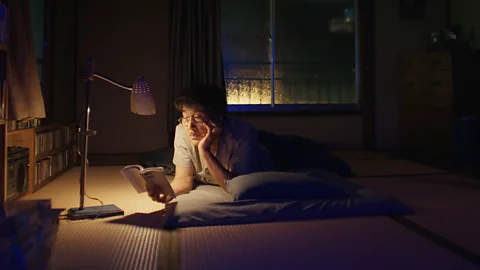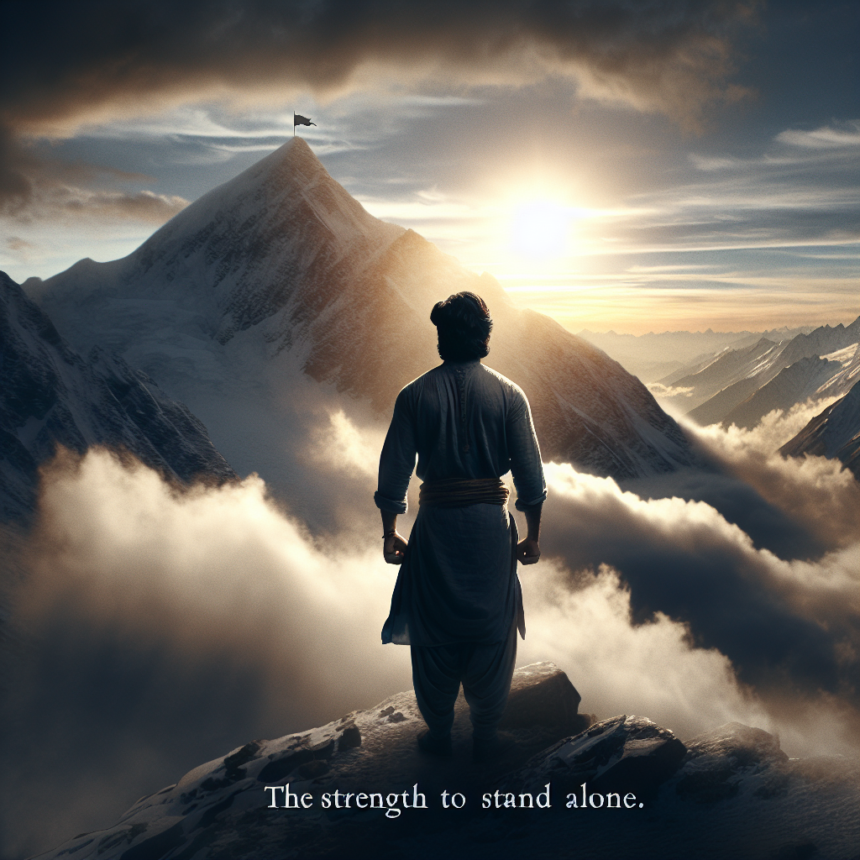In an age of relentless connectivity, where every moment is punctuated by pings, likes, and notifications, the idea of spending time alone might seem outdated or even uncomfortable. Yet, a growing body of research and a rising tide of cultural narratives suggest quite the opposite: solitude, when chosen mindfully, can be a source of deep joy, personal growth, and emotional clarity. The concept of how being alone can make you happier is no longer niche—it’s becoming a celebrated and empowering lifestyle choice.

From blockbuster films to bestselling books, solo living and intentional solitude are increasingly viewed not as symptoms of loneliness, but as opportunities for reflection and rejuvenation. Wim Wenders’ meditative film Perfect Days exemplifies this shift, portraying a Tokyo toilet cleaner whose quiet solitary routines—watering plants, listening to music, and reading—reflect a peaceful life rich in contentment. These calm, meaningful moments underscore how being alone can make you happier, when solitude is embraced instead of feared.
How Being Alone Can Make You Happier: A New Wave of Solitude-Inspired Literature
A number of newly released and upcoming books reflect this cultural pivot. Titles like Solitude: The Science and Power of Being Alone by Heather Hansen, Netta Weinstein, and Thuy-vy T Nguyen, and Solo: Building a Remarkable Life of Your Own by Peter McGraw, spotlight the idea that how being alone can make you happier is not merely a hypothesis but a lived reality for many. These works champion solitude not as a symptom of loneliness, but as a consciously chosen way of living—one that offers space for personal growth, creativity, and emotional well-being.
Nicola Slawson’s Single: Living a Complete Life on Your Own Terms and Emma Gannon’s Table for One further solidify this movement. Gannon’s shift from non-fiction to fiction with her novel signals a deeper engagement with the narrative of fulfillment outside romantic entanglements. In Table for One, a young woman rediscovers herself—not through a romantic partner, but through embracing her solo life, a theme resonating with thousands of readers.
Even more literature is on the horizon. Titles like The Joy of Solitude: How to Reconnect with Yourself in an Overconnected World and The Joy of Sleeping Alone promise readers a deeper exploration into the art and science of enjoying one’s own company.
Understanding How Solitude Differs from Loneliness
A critical aspect of understanding how being alone can make you happier lies in distinguishing solitude from loneliness. Solitude is often a voluntary state—a peaceful, self-directed pause from the noise of the world. Loneliness, on the other hand, is a painful lack of desired social connection. According to psychologist Robert Coplan, co-author of The Joy of Solitude, solitude was unfairly stigmatized during the pandemic as the media focused heavily on the “loneliness epidemic.”

But the tide is turning. Authors and psychologists now highlight that solitude, when chosen intentionally, is not just different from loneliness—it’s often its antidote. Journalist Heather Hansen notes that solitude is a personal decision made for its enriching qualities, rather than an unwanted absence of social interaction. Her insights challenge the binary thinking that alone equals lonely.
How Being Alone Can Make You Happier: Shifting Norms Around Relationships
Today, many people—especially Gen Z and millennials—are reevaluating traditional ideas about relationships. The assumption that happiness hinges on romantic partnership is being questioned. A 2023 US survey revealed that 40% of Gen Z and millennial respondents believe marriage is an outdated institution. In the UK, official statistics suggest that fewer than half of Gen Z individuals are likely to marry.
This changing mindset is reflected in social media trends, literature, and personal blogs. Nicola Slawson’s popular newsletter, The Single Supplement, inspired her book and offers a vibrant community of solo dwellers who prioritize independence, autonomy, and personal growth over traditional domesticity.
A Cultural Look at How Being Alone Can Make You Happier
Solitude isn’t a new phenomenon—it’s deeply embedded in art, philosophy, and spirituality. The 19th-century Romantic painter Caspar David Friedrich’s Wanderer Above the Sea of Fog portrays a lone figure atop a mountain, gazing over a foggy abyss—a symbolic representation of introspection and the human spirit.
Likewise, the works of American painter Edward Hopper often capture scenes of solitary urban life. While his characters appear alone, their posture and setting exude a quiet strength, portraying solitude not as grim but empowering. A 2022 retrospective of Hopper’s work at the Whitney Museum highlighted how his depictions of solo existence challenge the assumption that being alone must mean being unhappy.
How Being Alone Can Make You Happier: Redefining Happiness Beyond Relationships
Peter McGraw, professor of psychology and author of Solo: Building a Remarkable Life of Your Own, dismantles myths around marriage and romantic fulfillment. According to McGraw, marriage has historically served practical purposes like property consolidation and family lineage, not necessarily happiness.
“The idea that we need a partner to be whole is a romantic myth,” McGraw asserts. He points out that while marriage may bring a temporary boost in happiness, studies show this often fades over time. Instead, those who pursue meaningful goals, creative passions, and personal freedom may enjoy more sustained well-being—even when single.
The Benefits of Sleeping Alone
Even within romantic partnerships, the need for alone time is gaining traction. Cynthia Zak’s The Joy of Sleeping Alone tackles an unconventional but increasingly common preference: sleeping separately. Her work is rooted in the idea that many people, especially women, find better rest and emotional regulation when they have their own sleeping space.
Zak’s message promotes greater self-awareness and communication in relationships, encouraging couples to reassess norms in favor of individual well-being. In a world obsessed with closeness, The Joy of Sleeping Alone offers an affirming reminder that personal space can coexist with love and intimacy.
Learning How to Be Alone Well
Understanding how being alone can make you happier also requires practical strategies. Experts agree that the key is choice. Voluntarily stepping into solitude allows individuals to structure their alone time meaningfully—whether for self-reflection, creativity, or rest.
Hansen likens solitude to a “neutral blob of sculpting clay,” suggesting that it becomes fulfilling when shaped with intention. For McGraw, this means avoiding passive pastimes like endless streaming or scrolling. Instead, he recommends solo travel, creative writing, visiting museums, or taking online courses—activities that stimulate the mind and spirit.
Gannon champions “slow living” as a remedy to modern burnout. She advises embracing sensory details and mindful rituals—whether it’s journaling, walking through nature, or simply savoring a meal in silence. “Solitude,” she says, “is not just the absence of others; it’s the presence of yourself.”
Ritualizing Solitude
Yoga and meditation teacher Cynthia Zak encourages individuals to turn solitary moments into rituals. By identifying the activities we most enjoy doing alone—reading, painting, gardening, meditating—we can elevate them into sacred practices that promote self-connection and healing.
“What is the thing you most enjoy being alone with?” she asks. “Make a jewel of the moment.” Zak’s emphasis on ritual suggests that solitude isn’t something to tolerate—it’s something to treasure and refine over time.
Reframing Singleness as a Strength
Many singles postpone joy, waiting for the “right” partner to begin living fully. Nicola Slawson urges readers to stop viewing single life as a waiting room. “Squeeze as much joy as possible from the life you have now,” she advises. This mindset shift is transformative—it allows individuals to pursue hobbies, build careers, and cultivate rich lives without dependency.
McGraw adds, “Don’t default to any societal script.” In today’s world, there’s finally room for alternative narratives that honor single living as a vibrant and valid choice.
Creative Sparks and Cognitive Clarity
Solitude often enhances creativity. Without external noise or obligation, the brain has room to wander, make new connections, and solve problems. Emma Gannon believes solitude nurtures imagination and innovation. In her words, “Solitude gets the juices flowing.”

Artists, writers, and thinkers have long praised solitude for its role in creative breakthroughs. Virginia Woolf famously wrote about the need for “a room of one’s own.” Today, that room might be literal or metaphorical—but the principle remains: alone time fuels the imagination.
Sensory Grounding in a Fast World
In a hyper-digital society, solitude allows for a return to the senses. Gannon suggests a practice of grounding—paying attention to what you see, hear, feel, and taste. It’s about savoring the texture of a blanket, the melody of a song, or the aroma of tea brewing. These small acts reconnect us with the present moment and with ourselves.
Such mindfulness practices not only reduce stress but enhance gratitude and self-awareness—two powerful ingredients for lasting happiness.
Solitude as Liberation, Not Lack
Far from being a condition to escape, solitude—when chosen with intention—can become a source of profound happiness. It offers a chance to pause, reflect, create, and simply be. Whether you’re single by choice, in a relationship that honors space, or somewhere in between, embracing alone time is a radical act of self-care in today’s overstimulated world.
The movement is clear: solitude is not a void, but a canvas. And in learning how being alone can make you happier, we also learn how to be more present, more authentic, and more fulfilled—on our own terms.




